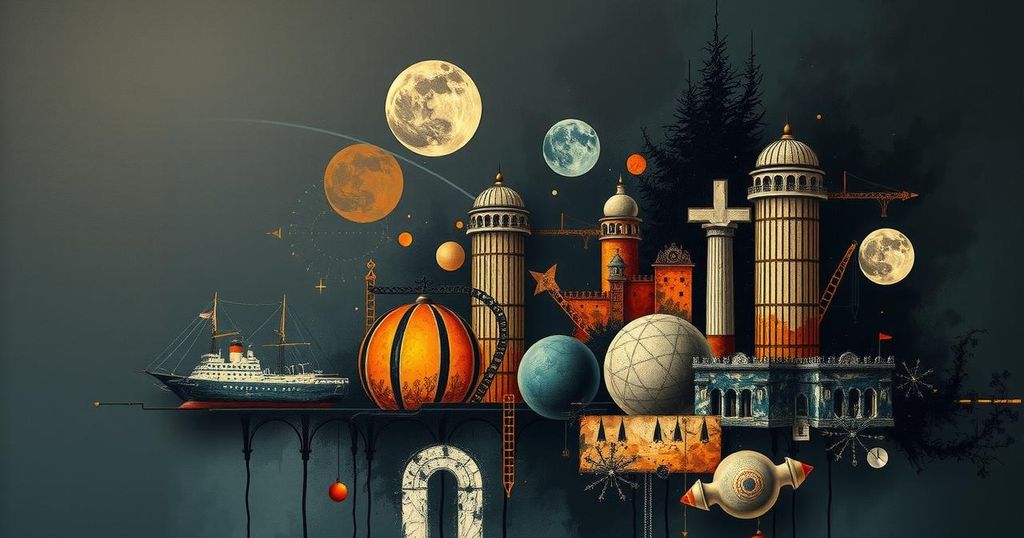Chinese Citizens Explore Historical Taboos Through American Politics
Recent American politics have sparked a surprising trend among some Chinese citizens, prompting them to reflect on the painful history of the Cultural Revolution. The period from 1966 to 1976 remains heavily censored, and open discussions are discouraged under Xi Jinping’s rules. Yet in the realm of online debates over US political figures, particularly Donald Trump, an unexpected leeway has emerged, allowing netizens to draw parallels and engage in critical reflections on historical taboos—a phenomenon that underscores the persistent scars of their past.
Censorship and The Taboo of Historical Reflection
Discussing the Cultural Revolution in China remains a slippery slope, particularly under the leadership of President Xi Jinping. The Cultural Revolution, a tumultuous decade from 1966 to 1976, saw untold suffering as millions were targeted and persecuted by fervent Maoist factions. However, in recent times, the resonance of this era is surfacing unexpectedly, as many Chinese citizens connect discussions of American politics to the struggles of their nation’s past. In fact, they’ve started to shed light on their historical taboos while engaging in debates around contemporary issues.
Perilous Comparisons: Trump and Mao
You might wonder why this is happening now. Amid the ongoing discussions surrounding American political figures, especially Donald Trump, Chinese netizens have been using the Cultural Revolution as a metaphor to critique or satirize current events. Censorship in China is strict and there exists a careful line that can’t be crossed; however, commentary on American politics is often perceived to carry less risk. Perhaps it is irony at work — these individuals discuss their own history without direct reference, creating an unsteady ground for examining their deepest fears while trying to make sense of foreign chaos at the same time.
The Threat of Historical Nihilism
Xi Jinping’s government has made it crystal clear that any reflection on the errors, atrocities, or simply the chaos of the Mao era is framed as ‘historical nihilism.’ This term is intended to quash dissenting thoughts and paint a broader picture of any critique of the Communist Party as an affront to national unity. Consequently, many are hesitant to engage deeply with this historical chapter for fear of reprisal, yet under the cover of discussing American politics, they find an avenue for expressing previously bottled-up thoughts. It’s a complicated dance of repression meeting political curiosity.
Navigating the Double-Edged Sword of the Internet
In this tangled web, one must also consider the implications of these conversations. For the majority of Chinese citizens who navigate the complexities of what to say and what to withhold, the internet represents a double-edged sword. There lies both the potential relief of sharing burdensome thoughts with a receptive audience and the lurking terror of being caught by the ever-watchful government. In discussing Trump, they manage to reflect on their own trauma, bridging temporal gaps of politics and personal history. The conversations are fragmented but powerful, hinting at deep-seated needs for catharsis and understanding.
A Glimpse of Open Discourse in the Shadows
Despite having to tread lightly around historical discussions, the undercurrents of dissatisfaction with past and present situations in China suggest a burgeoning desire for more open discourse. Chinese netizens participating in earnest dialogues about the Cultural Revolution, while cloaked in the context of Western politics, could signal a shift towards a broader understanding of their shared history. The tacit acceptance of these comparisons gives us a glimpse into a population yearning to process its own legacy more fully, even in an atmosphere not conducive to such reflection.
What connects American politics to the Cultural Revolution in China?
This article touches on how some Chinese netizens make comparisons between American politics, especially Trump, and the Cultural Revolution to critique the current political climate.
What does ‘historical nihilism’ mean in this context?
The term reflects concerns from Xi Jinping’s administration regarding any negative interpretation of the Mao era, which they see as a direct threat to their authority.
Can Chinese citizens talk about the Cultural Revolution?
Yes, some netizens find ways to discuss the Cultural Revolution indirectly, framing it within the context of foreign politics, allowing for some critical reflection.
Is there a shift towards more open discussions in China?
There are risks but also a growing desire for open discussions about historical events and their implications for contemporary society.
How might discussions about Trump affect discourse in China?
The article suggests that conversations about American figures like Trump may act as a catalyst for Chinese netizens to explore their own historical experiences.




